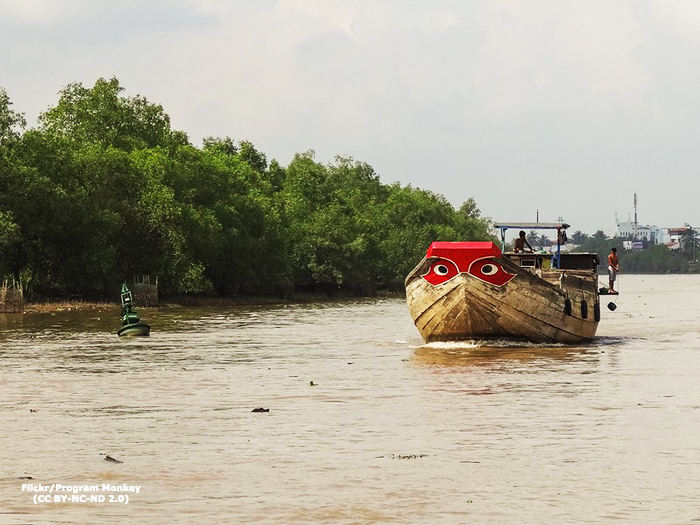
Countries Undertake Assessment of Plastic Pollution in the Mekong River
Government officials and university researchers from Cambodia, Lao People’s Democratic Republic (PDR), Thailand, and Viet Nam will work together to examine plastic waste leakage into the Mekong River system. The aim is to understand the current state of plastic pollutants in the region and offer policy recommendations to address the challenges.
According to a study on export of plastic debris by rivers into the sea, the Mekong River was one of the 10 rivers that collectively carried between 88–95% of plastics into the world’s oceans. The Mekong River Commission also noted reports underscoring the lack of basin-wide countermeasures for the ‘plastic lifestyle’ growing across Mekong communities.
The regional workshop hosted by the Mekong River Commission and United Nations Environment Programme (UNEP) Regional Office for Asia and the Pacific in Vientiane, Laos on 11-12 February 2020 discussed assessment methodologies to study plastic debris and its sources across the Mekong.
“The assessment will provide the four Mekong countries with scientific evidence and information on plastic debris, plastic pollution and its threat to the environment and people,” said Ms. Kakuko Nagatani-Yoshida, the UNEP Regional Coordinator for Chemicals, Waste and Air Quality.
Plastic debris and waste leakage assessment will be conducted in five sites in major urban cities of the Mekong River, including Phnom Penh (Cambodia), Vientiane (Lao PDR), Chiang Rai (Thailand), Ubon Ratchathani (Thailand), and Can Tho (Viet Nam).
Dr. An Pich Hatda, the MRC Secretariat Chief Executive Officer, stressed that this will help provide a better picture and understanding of the plastic issues in each of the four countries. The MRC will formulate a long-term activity to monitor, assess, and provide policy recommendations to the Member Countries, using results from the national reviews and Counter-MEASURE project. The Counter-MEASURE Project of the UNEP Regional Office for Asia and the Pacific promotes countermeasures against marine plastic litter in Southeast Asia and India.
The MRC hopes to incorporate the findings into the next Mekong State of the Basin Report, and develop a strategic framework for plastic pollution management in the Mekong subregion and create networks across the four countries for the monitoring and management of Mekong plastic pollution.
